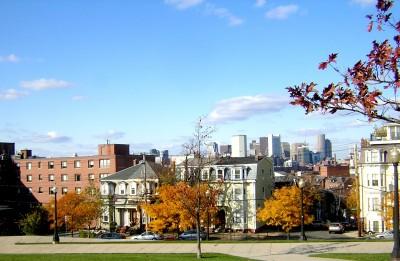
Nichole Bell, 40, of Dorchester, has noticed that there are more and more families having experiences she can relate to.
“My brother was killed,” Bell said. “I do the peace walk every year, and every year it is more and more families affected by the violence. It’s all different kinds of things. Like I said it’s getting worse and worse.”
Boston Mayor Martin Walsh and the Office of Public Safety hosted a series of walks in the neighborhoods of Dorchester and Mattapan between Aug. 24 and Aug. 28 to engage the community and find ways to address violence, though residents of both neighborhoods are still unclear as to how the walks are helping.
Referencing a series of shootings in August, Walsh highlighted the importance of continuing to respond to the outbreak of violence in an Aug. 24 press release.
“We know there is more work to be done to end violence in our neighborhoods,” Walsh said. “Now is the time that we must come together as one community to find the solutions that create neighborhoods that are safe for our children and our families.”
Officer Rachel McGuire, a Boston Police Department spokesperson, said that BPD hosted walks during the summer that have been “very popular” within the community.
“It’s a great time for police officers to reach out and speak with community members, and community members can voice their concerns,” McGuire said. “It’s fun too. It’s not all serious. It’s a great way for community members and police officers to relate to each other as individuals.”
Bell participates in events for support, but said she does not believe that there has been any visible improvement in the communities.
“I don’t think [the community engagement effort] is helping,” she said. “It brings the community together, yes, but it seems like the crime and violence is getting worse. I think they need more stuff for these kids to do … They need more jobs. They are out there selling drugs and stuff like that. They feel like rejects because they can’t get a job, so they turn to drugs. It causes the violence.”
Despite recent violence, violent crime has declined 12 percent overall between 2014 and 2015, according to a BPD report.
McGuire said that the police officers want the community members to feel protected.
“We are out there in the community speaking with our neighborhoods. We are doing the flashlight walks,” she said. “We are not the bad guys. We are the people you can come to when you are in trouble, when you need something.”
Several Dorchester residents said they support efforts to address city violence, but they are not sure whether the city is doing is enough.
Alex Martinez, 35, said he encouraged the city’s involvement in neighborhood affairs. He suggested weekly meetings to start conversation with community leaders to ensure safer neighborhoods.
“We’re actually moving in about a month from this area. That is how crazy it is,” he said. “We’ve been contemplating about leaving anyway, but you know every summer is getting crazier and crazier. It’s too much. Unfortunately, I don’t know what has been done in the city to help us or to at least reduce the numbers of crime in this area. It is horrifying. I’m worried about my family, my friends and myself.”
Shirley Jones, 60, said focusing on children in the neighborhoods can help alleviate violence.
“[The] crime starts with the youth, so you have to be direct. They should be more active in the church, spiritually, so they have some form of guidance,” she said. “As far as I am concerned, they lack guidance from the core. As a child, they may do something a bit rude, and you think it’s cute, and you let it go. And then when the child grows up it becomes worse and worse and worse.”


















































































































